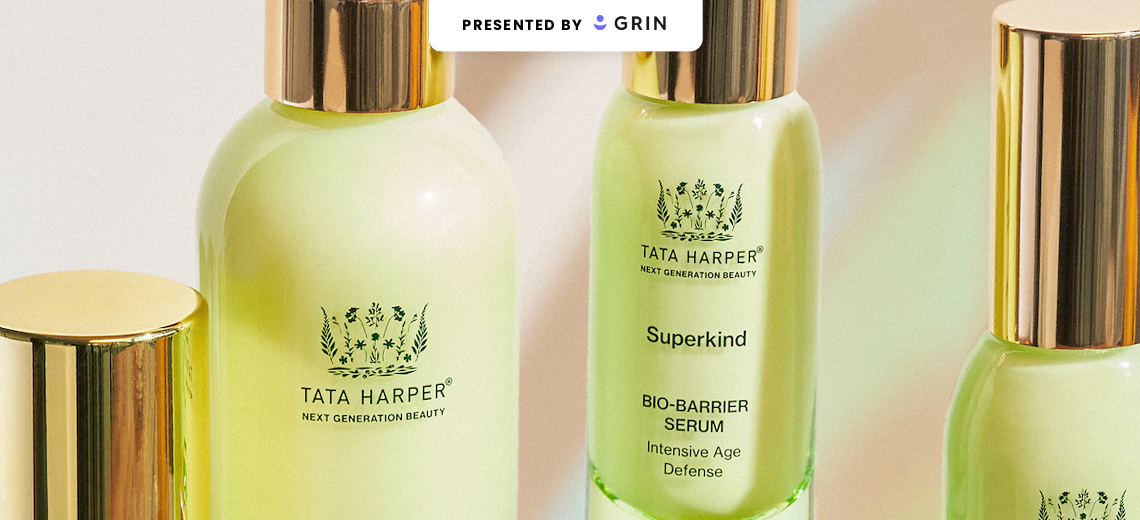All products featured on Glossy Pop are independently selected by our editorial team. However, when you buy something through our retail links, we may earn an affiliate commission.
On Instagram, the hashtag #sensitiveskin has 1.2 million posts. On TikTok, the same hashtag has 210.1 million views. But unlike a buzzy new ingredient or makeup hack, sensitive skin is not a trend, but rather a skin condition that has always existed.
According to Dr. Josh Zeichner, a dermatologist, an estimated 50% of the population has sensitive skin. Though this has always been the case, according to dermatologist Dr. Ranella Hirsch, there has “definitely been a rise in the number of people seeking out products for sensitive skin” in recent years. That said, even defining sensitive skin can be tricky, as a result of the “variability between different testing methods, [different] geographical experiences and the use of self-reporting as a standard,” said Hirsch.
In the past year alone, a slate of brands has introduced sensitive skin franchises, and entirely new brands have launched that are aimed at catering to skin that needs extra coddling. So why the spike, and why now? There are a few contributing factors. First up, people are doing more within their routines and using more products on their skin. During quarantine, in particular, people experimented with skin care in ways they hadn’t before, which, in some cases, led to discovering sensitivity by way of trial and error. Others have seen their skin struggle as a result of wearing masks or simply due to the stressors of living through a pandemic. Hirsch said that, overall, there is likely an increase in sensitized skin, defined as “skin that is reacting to some trigger — not so much because of an inherent sensitivity, but [due to] products themselves being harsh and irritating, and leaving damage to the skin and barrier.”
For Tata Harper, who launched her brand’s first sensitive skin-focused collection, Superkind, in April, the products deliver on customers’ needs. “The reality is that the modern environment we live in is full of stressors and allergens, which can cause more reactive skin. Hormonal changes and high levels of stress can lead to skin becoming more sensitized, as well,” Harper said of the catalyst for the new products. The Softening Cleanser, Fortifying Moisturizer and Radiance Mask launched in April. In August, the brand added the Bio-Barrier Serum and Eye Creme to the lineup. The products range from $86-$130.
Jessica Alba’s Honest Beauty added a sensitive skin category to its lineup in July 2020. Rodan & Fields launched its Soothe collection in March. GoodSkin MD, a new sensitive-skin brand created by Procter & Gamble, debuted in June. And in August, Tatcha launched its Indigo Overnight Repair Serum and Cream Treatment, designed to address redness and dryness, and to help strengthen the skin barrier.
Customers with damaged skin barriers and highly reactive skin “are absolutely not helped by the [launches] of 30% acids for home use — [those products are] crazy. They’re also not helped by the silly arms race [to sell products with] the highest percentage of active ingredients. We know many of those ingredients actually work better at lower percents, so that’s even crazier. And what’s craziest is every stupid TikTok trend,” Hirsch said. Regarding the first point, The Ordinary’s AHA 30% + BHA 2% Peeling Solution is one example.
At P&G, surveys found that “more than 65% of consumers say that they have experienced signs of sensitivity like redness, dryness, dry patches or a stinging/burning/itching sensation on their facial skin, and 83% are actively looking for skin care products that are created ‘for sensitive skin’ or that are ‘fragrance-free,’” said Eric Rose, senior brand director at Procter & Gamble. GoodSkin MD was launched to be a solution.
Ad position: web_incontent_pos1
“GoodSkin MD is a gender-neutral brand targeted at millennials (ages 27-40) who describe their skin as sensitive, and this self-assessed sensitivity is among their top considerations in purchasing skin care,” Rose said. The resulting products are formulated without ingredients like parabens, phthalates, synthetic dyes, mineral oil and fragrances.
French pharmacy mainstay Avene has always been associated with sensitive skin, but has expanded its portfolio of options over the past 18 months, especially due to stress-related skin concerns and issues like maskne. Being an international brand, Avene is aware of behavioral differences among its customers: “American consumers largely tend to seek out harsh and aggressive skin-care products that may burn or sting when applied — a signal to some consumers that products are ‘working,’” said Jacqueline Flam Stokes, CMO of Pierre Fabre, which owns Avene.
Though, to a certain extent, the category growth suggests that marketers see a financial opportunity, products labeled for sensitive skin do have differences. They are, simply put, more “bland,” Hirsch said. “They often contain ingredients [like] ceramides, glycerin, etc. that are soothing and restorative to the skin barrier.”
All this to say: “You could also find solutions that don’t have a ‘sensitive skin’ label. But the most important thing you can do is just figure out what the culprit is and stop doing it,” she said.




